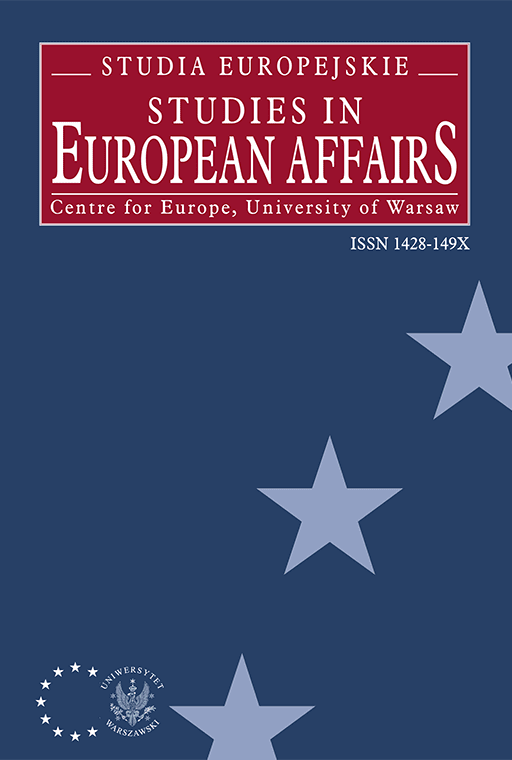
ISSUE: 2/2006
- Volume 38
- Number 2
- 2006
Subscribe NEWSLETTER
Studia Europejskie –
Studies in European Affairs
ISSN: 1428-149X
e-ISSN: 2719-3780
License
Articles published in the journal are under a Creative Commons Attribution – Non Commercial – No Derivatives 4.0 International License
Federalizm a budowanie jedności Europy
Federalism and shaping of European Unity
Abstract
The article examines federalism as a theory of European integration stating an important question whether this model, based upon the 18th Century experiences with forming a nation-state, is suitable to explain the dynamics of European integration. The first step in the analysis determines possible meanings of the term federalism, then three main strands (according to M.Burgess) of federalist thought in Europe following the 2nd World War are identified and examined. The first one is Altiero Spinelli’s federalism that could be called a radical constitutionalism, urging for a prompt start of European constitutional process resulting in creation of a new policy with clear distribution of power between European and national level. The second one is Jean Monnet’s functional federalism, in which European federation is a result of a long process of gradual integration driven by a growing common interest and functional premises about spill-over. The last one is an integral federalism, a philosophical stand rather than a political program, emphasising the need for truly European society built upon a personalist view of people. Finally, the Author identifies federal elements of European Union as it is today and discusses whether time has come to consider a shift from Monnet to Altiero Spinelli ideas as a model for unity. The article ends with a short description of current debate about federalism among politicians and scholars alike.
Language: Polish
Pages: 87-109
How to Cite:
Harvard
Borkowski, P. (2006) "Federalizm a budowanie jedności Europy". Studia Europejskie – Studies in European Affairs, 2/2006, pp. 87-109.